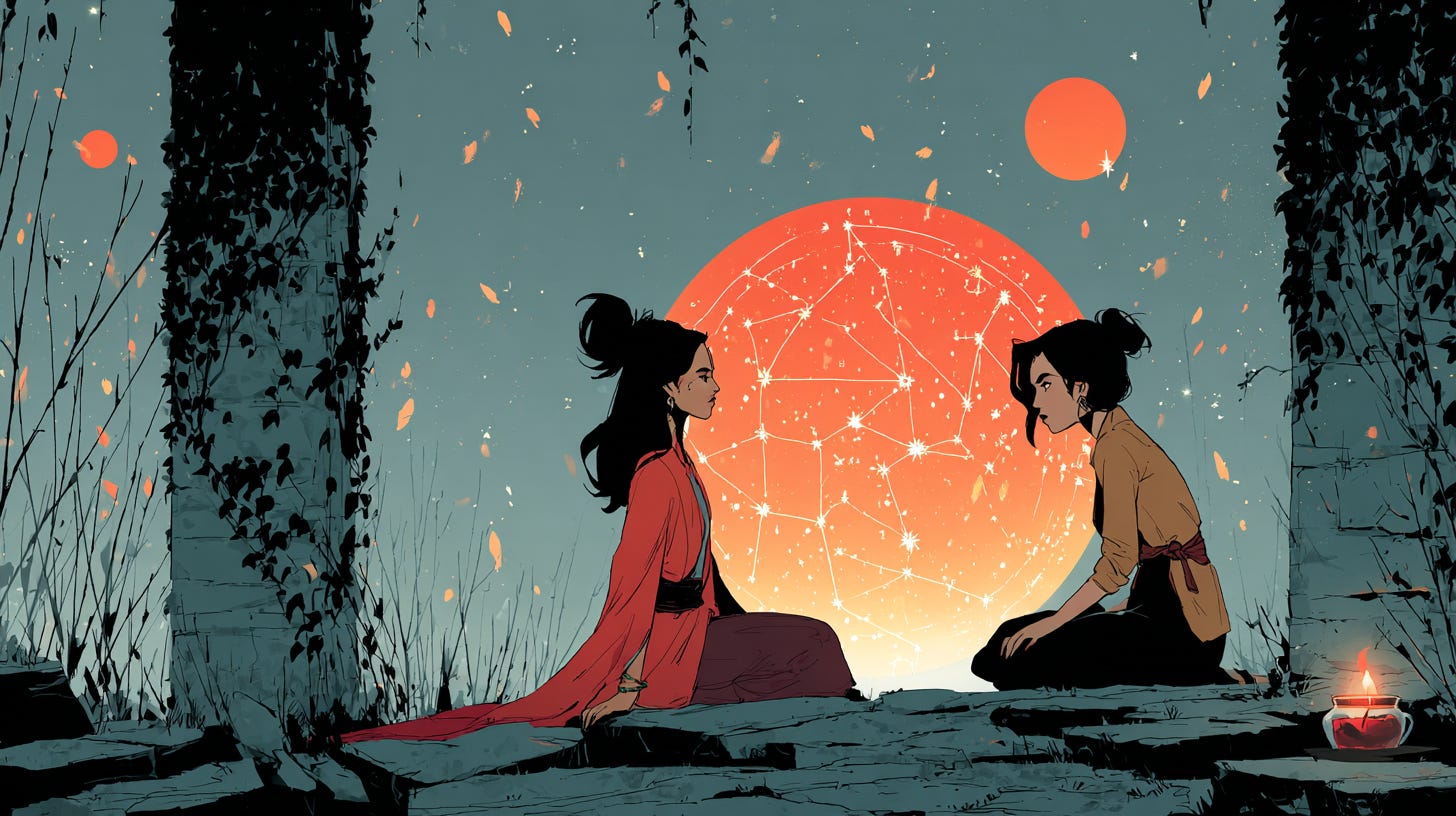Beyond Catastrophe
Reclaiming Compassion in Traditional Astrology
Traditional astrology, especially in its Hellenistic roots, often carries the weight of its historical context—one where the fragility of life was inescapably visible, and prediction served as both warning and preparation. The texts that have survived from antiquity reflect this, steeped as they are in significations of illness, conflict, death, and disaster. These were not frivolous concerns. They were, for much of human history, daily realities. And so astrology became a language for naming those dangers, mapping out where and when they might strike.
But in our contemporary context, where access to information, care, and community has shifted so significantly, we have the opportunity—and perhaps the responsibility—to reinterpret how we use this ancient language. Too often, modern applications of traditional techniques still echo the fatalism of the past. Charts are dissected for their potential to reveal hardship: breakups, betrayals, losses, accidents. The story becomes one of doom, punctuated with moments of hope but largely shaped by fear.
And yet, astrology does not have to be that. Not anymore.
Among many traditional astrologers today, there is a growing awareness that our role is not to predict catastrophe, but to offer insight and support. Yes, the techniques we use—whole sign houses, sect, triplicity rulers, planetary condition, decanic lords—are precise, ancient, and powerful. But how we interpret what we see, and how we communicate that to those who seek our counsel, matters just as much as the techniques themselves.
Because clients come to astrologers at vulnerable moments. They may be facing uncertainty, transition, or loss. They may be seeking clarity in chaos, or reassurance amid self-doubt. In those moments, what we say about a square, a malefic conjunction, or a profection year carries weight. Our words can either open a door to understanding—or close one with fear.
It’s not about pretending everything is fine. It’s not about sugar-coating difficult transits or denying the real challenges that charts can reflect. Rather, it’s about cultivating a tone of grounded honesty. One that neither catastrophizes nor dismisses. A tone that recognizes suffering without centering it. That leaves room for joy, resilience, growth—even in the shadow of Saturn or the heat of Mars.
Many clients have lived through the very experiences traditional astrology would label as “malefic.” And yet, those experiences have shaped them into people of extraordinary compassion, insight, and depth. Rather than treating certain placements as permanent flaws or doom-laden destinies, we can approach them as invitations—opportunities to understand what kind of strength, resourcefulness, or healing might be called for.
This is especially crucial in modern practice, where astrology often overlaps with therapeutic, spiritual, and coaching contexts. As traditional astrologers, we are not separate from the emotional and psychological lives of our clients. Our readings exist within that relational space. And in that space, fear-based interpretations often do more harm than good.
The call, then, is not to abandon tradition, but to humanize it. To take the rigor and richness of Hellenistic methods and infuse them with compassion. To remember that prediction, when used wisely, can be empowering—not because it tells people what will happen, but because it helps them prepare with clarity and courage.
Not every Saturn return is a breakdown. Not every twelfth house transit is exile. And not every difficult configuration marks the end of something good. Sometimes, it’s the beginning of a deeper becoming.
In a world already full of uncertainty and noise, astrology has the potential to be a steady, grounding voice. One that reminds us that the stars do not compel—they reflect. And it is in how we read, speak, and listen that meaning takes shape.



